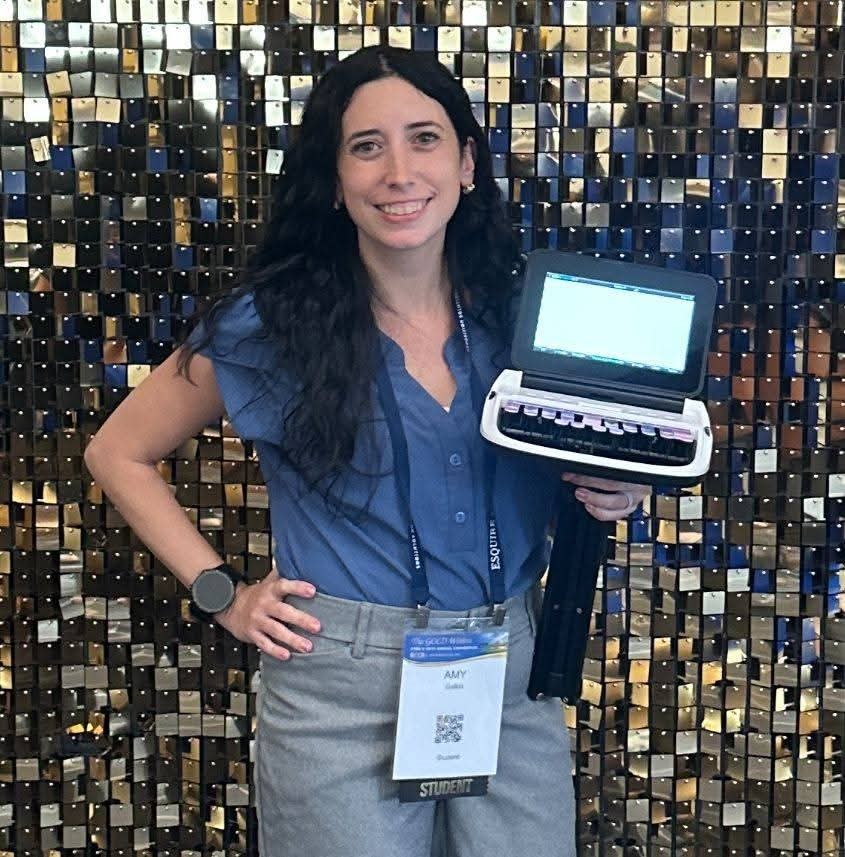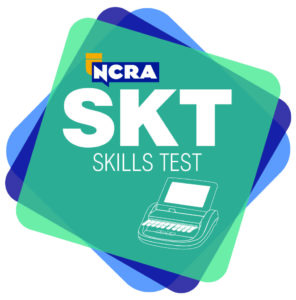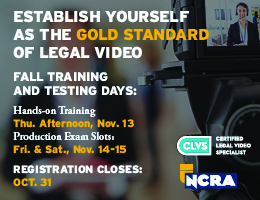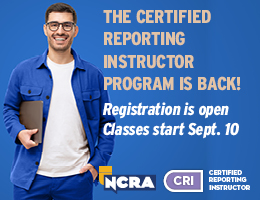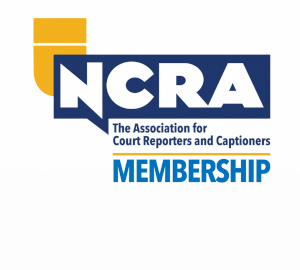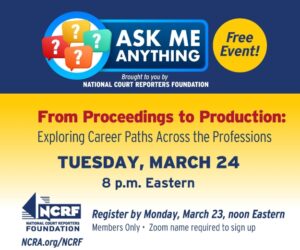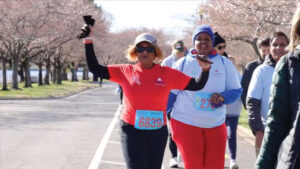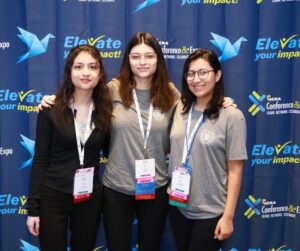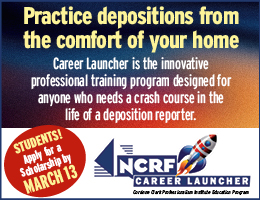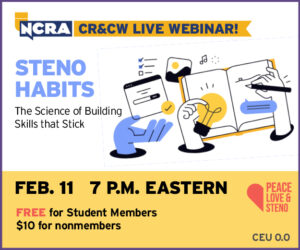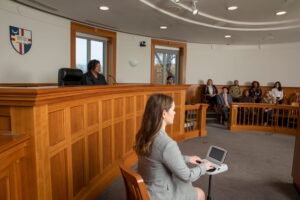By Amy Galkin
Finding my starting point
When I was around 160 words per minute, I decided it was time to take the written portion of the RPR. I figured it made sense to get the studying out of the way so that when I was ready for the Skills Tests, I could focus completely on those. Like most people, I bought some prep books and started making flashcards. Pretty quickly, I realized nothing stuck. I tried starting small with just 10 flashcards a night and planned to add 10 more each day, but my brain didn’t cooperate. I needed to find a different way to study.
Rethinking how I learn
I’ve never thought of myself as bad at learning. I have a Bachelor of Arts degree in history, and studying history never felt hard to me. It wasn’t about cramming facts into my head. It was more like remembering a story. I never used flashcards in college, so I considered different learning styles and how I might need to approach this material differently.
Study group success
When my husband was studying for the California Bar Exam, he had a book of multiple-choice questions, and we’d quiz each other. I’d read a question, guess what I thought the answer was and why, then he’d do the same before we checked the real answer. I thought that method might work for me too. I had a group of friends who were also in court reporting school and studying for the RPR WKT, so we decided to meet once a week and do the same thing. It turned out to be a lot of fun. Everyone brought something unique to the group. One person worked for a court reporting agency; another had a medical background; and one had been a teacher with a great handle on grammar. I had picked up some legal knowledge from helping my husband study for the bar and from reading a lot of John Grisham novels. We all learned a lot from each other, and those weekly sessions became something we looked forward to.
Turning ethics into skits
After that, I started reading through the NCRA Code of Professional Ethics Advisory Opinions. They all read like little stories: a questionable situation followed by the right way to handle it. I wanted to see them play out, so I copied one of the opinions into ChatGPT and asked it to make a funny skit that covered the main points. Then I decided to act them out. I went into my son’s room, grabbed a few stuffed animals, and used notecards, a Sharpie, and tape to label the characters. I gave each one a voice and filmed the skits on my phone. I turned them into short Instagram reels and uploaded them under the handle @stenoskits so other students could watch them too.
Creative tech tools for studying
The best piece of advice I can give to anyone studying for the RPR WKT is to look closely at the Job Analyses on the NCRA certification website. It shows exactly what you need to study. The hardest section for me was the technology part. When I looked up some of the terms, the explanations were too advanced. I asked ChatGPT to give me simple summaries of each topic. The written versions helped, but I’ve always learned better through listening. My husband showed me a website called NotebookLM that can take written material and turn it into a podcast with AI-generated hosts. I tried it and was surprised at how natural it sounded. Every now and then the hosts said something odd like “court retorter” instead of “court reporter,” but it still worked great. I uploaded my study podcasts to Spotify under the name “RPR WKT Study Podcast” so other students could listen too. I’d play them while driving or doing chores, and it really helped me fit studying into my day.
What I learned in the end
After trying all these different study methods, I’m proud to say I passed the RPR WKT on my first try. My friends from the study group all passed too. What I learned through this process is that if something isn’t working for you, don’t give up. Try something new. There isn’t one right way to study for everyone. The best thing you can do is get creative and find what actually works for you.
Amy Galkin is a student at Allison Hall Reporting Education.
